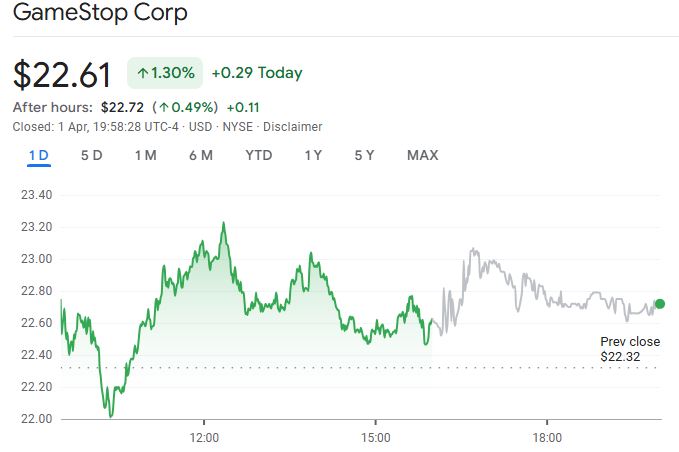Video game retailer GameStop Corporation (GME) has completed a convertible debt offering that generated $1.5 billion, with a portion of the funds designated for purchasing Bitcoin.
The offering initially aimed to secure at least $1.3 billion, but investors opted for an additional $200 million in total principal amount of notes, as articulated in a filing with the Securities and Exchange Commission on April 1.
“The company anticipates utilizing the net proceeds from this offering for general corporate purposes, including Bitcoin acquisitions in alignment with the Company’s Investment Policy,” GameStop noted.
The convertible notes represent debt that may later be changed into equity and are set to mature on April 1, 2030, unless they are converted, redeemed, or repurchased beforehand.
According to the filing, the conversion rate for the notes will be 33 shares of Common Stock for every $1,000 principal amount of notes.
Following the conclusion of the convertible debt offering, GameStop’s shares did not experience significant movement. GME finished trading on April 1 up 1.34% at $22.61 and experienced a slight increase of 0.5% after hours, as indicated by Google Finance data.

GameStop’s stock price showed minimal fluctuation after announcing the closure of the convertible debt offering. Source: Google Finance
Positive sentiment from shareholders propelled the stock up nearly 12% to $28.36 on March 26, a day after GameStop revealed its Bitcoin (BTC) strategy, but fortunes shifted dramatically the following day, with GME shares plunging nearly 24% to $21.68.
At the time, analysts pointed out that the negative response likely stemmed from concerns regarding deeper issues within GameStop’s business model.
GameStop embraces the Bitcoin trend
On March 25, GameStop announced that its board had granted approval to invest in Bitcoin and US-dollar-pegged stablecoins using the notes and its cash reserves. As of February 1, those reserves totaled $4.77 billion, a significant increase from $921.7 million the previous year.
GameStop has entered the Bitcoin treasury scene relatively late, with many other public companies already including Bitcoin on their balance sheets, following a strategy popularized by Micheal Saylor.
Related: Metaplanet adds $67M in Bitcoin following 10-to-1 stock split
The video game retailer had earlier engaged with the crypto space through a crypto wallet for users, which was ultimately discontinued in November 2023 due to regulatory ambiguity.
Additionally, GameStop is often cited as a prime example of meme stock success after a short squeeze in 2021 caused shares to soar over 1,000% in a month, as traders outmaneuvered hedge funds profiting from short-selling the stock.
Magazine: SEC’s U-turn on crypto leaves key questions unanswered
